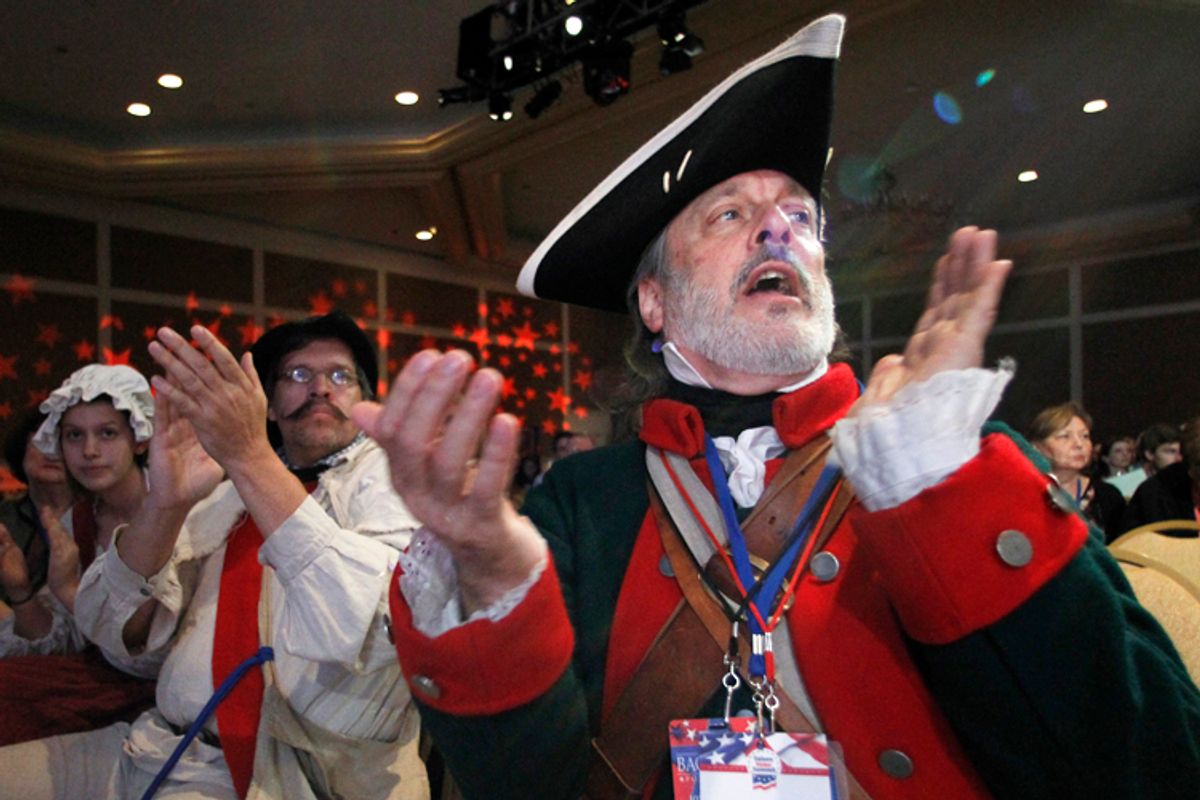On the heels of last night’s heated primary elections where a number of incumbents fended off a wave of Tea Party contenders, CBS has released a new poll showing the Tea Party brand losing support, even among Republicans:
The tea party was an important factor in the 2010 elections, but its support may be waning, according to a new CBS News poll. Today, just 15 percent of Americans say they are supporters of the tea party movement - the lowest since CBS News began asking about the tea party in February 2010. The tea party reached its highest level of support (31 percent) in November 2010, soon after the midterm elections.
The movement may be losing some of its core constituency -- Republicans. 32 percent of self-identified Republicans now consider themselves supporters of the tea party - down 10 points from February and a decline of 23 points from July 2010, the summer before the Republican Party took control of the House of Representatives. The percentage of Republicans who identify as tea party supporters is now among the lowest in CBS News Polls.
But, as Salon’s Jim Newell points out, even though Tuesday’s primaries might have been a big night for “establishment” Republicans, the party has still moved significantly in the Tea Party's direction:
In order to beat the “Tea Party” candidates, the “establishment” candidates adopted every position of the Tea Party so as to render both of these labels meaningless. Republican party.
On the far Right, Ed Morrissey over at Hot Air has, for the same reason, declared this a major victory:
Incumbents who won last night did so by embracing the Tea Party agenda, at least in part. The movement has impacted the so-called establishment by shifting it to the fiscal-conservative and smaller-government Right. Incumbents are no longer getting ambushed by treating re-election efforts as walkovers, mostly because they have spent the last couple of years listening to their constituencies rather than ignoring them.
The notable difference between Newell and Morrissey is that one signals regression while the other cheers progress. This seems to echo the sharp divide in how the Tea Party is viewed. And, it raises an interesting question: If "just 15 percent of Americans say they are supporters of the tea party movement" but the "establishment" has embraced its ideas, is that victory or defeat?



Shares